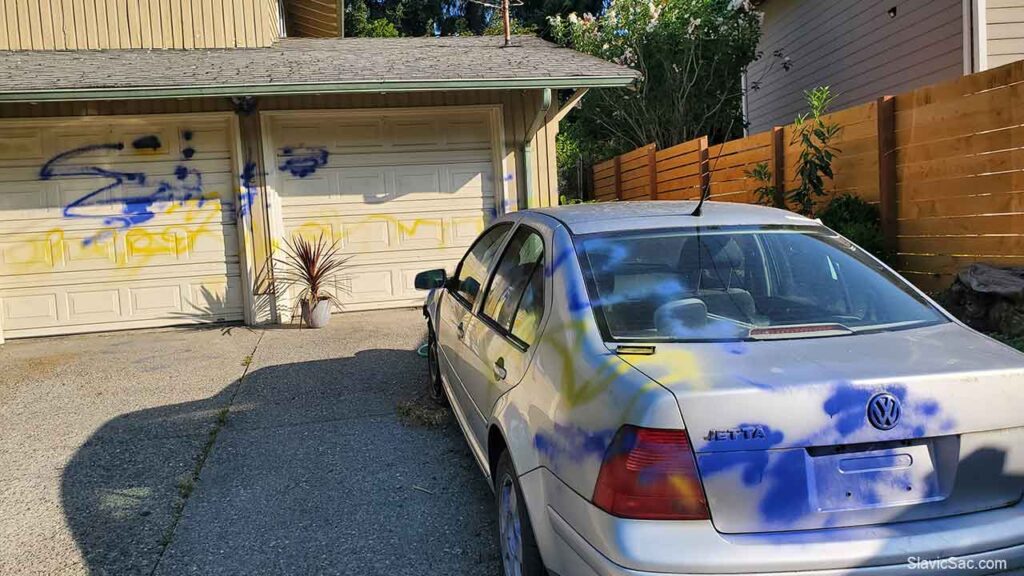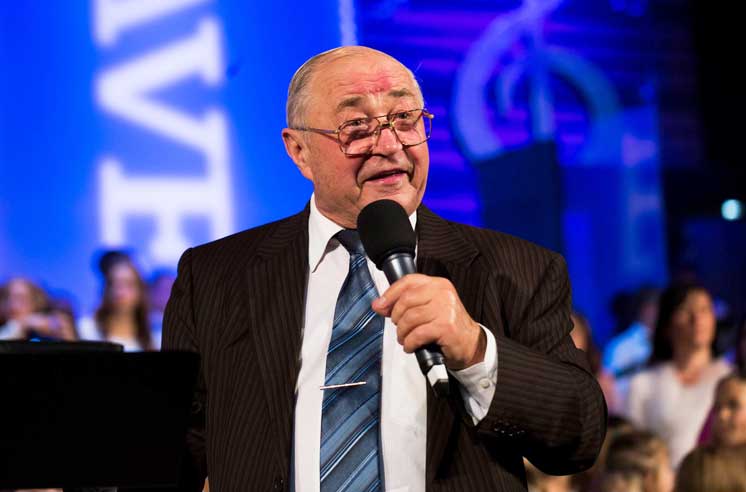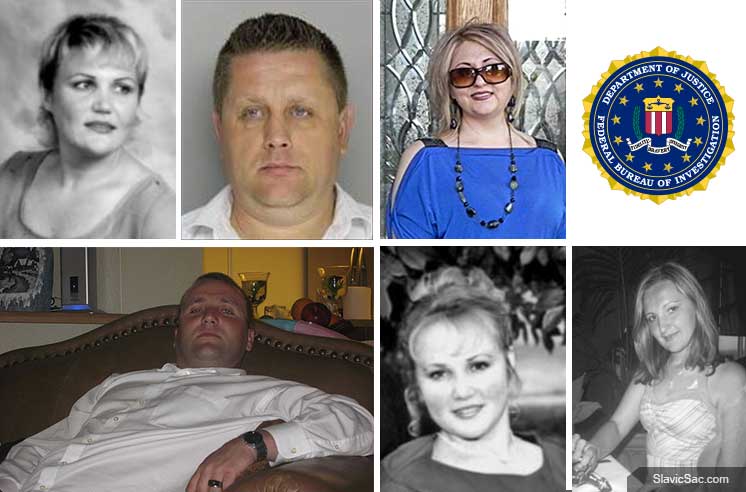The city of West Sacramento has a population of 50 thousand, and about 10% of them are Russian-speaking immigrants. According to Eugene Semeryuk, a Sergeant in the local police department, two new police officers just started serving the Russian community.
(Please turn on CC for English on video!)
Slavic department in West Sacramento police
Eugene Semeryuk, who immigrated from Russia in 1992, has been working in West Sacramento police for fifteen years. He was advancing his career alongside local officers, spending many years studying law and learning legal English. When he started in 1999, he was the only Russian-speaking officer in the department, so he had to take care of the many things happening in the Slavic community.
“I was an instructor, I trained policemen and interns, then I was an investigator, and now I am responsible for the road traffic,” says Sergeant Semeryuk, the chief of the department.
“We have a patrol of 5 to 7 officers for the entire West Sacramento; another 2 people work with schools and take care of juvenile justice. We also have investigators although they do not wear uniforms, they are ready to assist us at any moment,” Eugene demonstrates a breathalyzer that looks like a small suitcase and consists of a computer and an alcohol sensor.
“You swipe a driver’s license here and all the information shows up at once. The breathalyzer tube goes in here, and it instantly displays the alcohol level,” Eugene shows us a bright yellow gadget that looks like a two-way radio.
Russian diaspora in West Sacramento
West Sacramento has a large Russian diaspora, so the police department recently hired two more Russian-speaking officers: Sheriff’s Academy graduates Andrey Kinda (24) and Alexei Venikon (26). At the start of their shift, the young officers get their Colts and a pack of live ammo from the armory room.
“We get the rifles in the morning and return them in the evening, or vice versa, depending on which shift we are working,” officer Andrey Kinda describes his daily routine.
Read also: Bishop’s son Pyotr Bondaruk sentenced to 6 years
A police station has one room where the law enforcement officers are not allowed to be armed. You would never guess what it is! We are talking about the room where the detainees are taken in. According to the protocol, all weapons must be left outside this room in a special safe box. This is done to avoid accidents, because the police have to deal with all kinds of “clients”. Indeed, as soon as we left for our patrol, the colleagues of Russian officers brought in a woman in an unsound state of mind, who was later transported to a hospital.
We take our seats in the well-equipped patrol car, and Eugene shows us the video recording system. He says that “the technology is constantly evolving, so we get more and more gadgets”.
We pass the heavily guarded police department gates and turn onto Jefferson Boulevard where about a dozen Russian shops and businesses are located. In a minute we stop at a gas station close to the Bryte Church, one of the largest Baptist churches in Sacramento that has a congregation of about 2000 people.
The equipment and the video recording system
“This is the system that allows us to receive calls, send messages and so on,” Eugene enters our destination point into the GPS navigator on the dashboard. “These four calls are currently pending, and these calls already have officers assigned”.
The camera on the windshield sends the video to the computer that records fair picture of events. Law enforcement gets more and more complaints from the citizens, so a decision was made to equip every officer with audio and video recording devices, which helps both police officers and their opponents.
Read also: How many Russians/Ukrainians live in Sacramento?
“We have cameras, we wear microphones,” says Eugene, “so when something happens, we have a record of it, starting from 30 seconds prior to the event. The recording can be turned on either manually, or automatically when we stop the car or get into an accident”.
If the detainee files a complaint, the video recording will be presented in the court.
Although, according to Eugene, videos do not always present a fair picture of the events. Sometimes a video published on the internet. does not reveal crucial details such as a movement of the detainee’s hand, or his attempt to reach for a weapon, or his mental condition and so on.
The traffic department pays great attention to preventing accidents and educating drivers and pedestrians. Eugene Semeryuk warns:
“Imagine you are driving a car at 25 miles an hour, and a little boy runs out on the road in front of you chasing his soccer ball. You instantly hit the brakes, but the car takes at least 80 feet to stop. So take your speed seriously!”
From a Marine in Afghanistan to a patrolman in Sacramento
Finally we stop at the very center of the state’s capital, Downtown Sacramento is to the left of us, the Tower Bridge is on the right. Alexei Venikon describes his first weeks in the police force.
“Today I visited a mother who complains about her 13-year-old daughter beating her and misbehaving. She is 30 years old, how am I supposed to teach her to live with her daughter? She calls me and asks me to teach her to be a mother. This is probably the most difficult type of calls we get”.
Serving in the California police is much easier than serving in Afghanistan in full battle dress, under the blazing sun and in the gun sights of the Mujahideen. That is where Alexei had to spend four years of his life.
“My first assignment was a gunman in Afghanistan, and then I was a platoon commander”, says Alexei. “We had those little bottles of water we used to wash our hair. And sometimes we just had wet napkins to wipe ourselves. We spent seven months without a shower, we slept right on the ground, we had no electricity. We ate, what do you call them, the MREs – if you served in the military, you know what those are. The heat was 120-130 degrees in the shade, and I was always wearing my bulletproof vest and carrying my machine gun, a total of 60 pounds of weight.”
“Alexei Venikon served 4 years as a Marine in the US Armed Forces, he made two tours to Afghanistan, so he has the tactical skills and the ability to make quick decisions. Also, both of them speak Russian, which is very important because West Sacramento has a lot of Russian-speaking people. When I started in the department in 1999, I was answering all the Russian calls we got”, says Eugene.
According to him, many newcomers project the laws of their country to the American reality, which causes them unnecessary problems. Some other immigrants turn all their efforts to making money and let the street take care of their children. Very soon they face dire consequences when their sons and daughters turn to crime or drug use. Some parents call Eugene and ask him to “come and punish” their children. But Eugene explains to them that “this is not how things are done in America”.
“We had to tell people how the laws work, because some of the younger generation has turned to drug use, and it causes great problems. The drug use leads to theft, so parents don’t know what to do and they call us.”
Andrey Kinda, an Academy graduate
Another intern, Andrey Kinda, whose family moved to Sacramento from Belarus, recently graduated from the Sheriff’s Academy and was assigned to West Sacramento police department. Prior to that he worked in Citrus Heights police where he mostly did the paperwork.
“It is good to know we have some Russian officers. For example, Andrey Kinda, who graduated best in class from the Sheriff’s Academy”, says Sergeant Semeryuk. “Kinda’s family moved to Sacramento from Belarus when Andrey was 2. Andrey speaks three languages, Russian, Ukrainian and English, so he is a perfect fit to work in our community and in our police department”.
“I went to American River College right after school to study law, then I transferred to Sacramento University where I’m currently finishing my Bachelor’s degree. Tomorrow it will be my 4th week on patrol, and before that I spent six months in the Academy. When you are in the Academy, it seems tough, but when you start working on the street you realize that the Academy was easy.”
The most difficult part, according to Andrey, is finding the common language with people. One wrong word can lead to misunderstanding and, potentially, great troubles.
“Many eyes are looking at your work; if your work is half-literate, you are considered half-literate as well. So English was a difficult barrier for me to overcome, because you need to not only be able to write in English, you need to make your reports in perfect chronological order and properly document all the events, evidences and testimonies. It is great that Slavic people who were raised in a different language are able to overcome this obstacle.”
Officers do not go to work “to shoot someone”
We are passing through the old part of West Sacramento where the road is lined with modest-looking houses. According to Eugene, districts like these are mostly inhabited by working class people. Crimes, drugs and prostitution are not uncommon here.
“Most of them are working people, but 5-10% of the population is enough to make an impression of a bad area. Mostly, if you stop and talk to them just like we do they are regular good people who work for a living”, says the Russian officer while surveying the well maintained lawns.
How many Russians/Ukrainians live in Sacramento?
The talks about poverty and crime lead us to the subject of citizens complaining about police brutality. Those accusations are not true, says Sergeant Semeryuk. According to him, the cops do not go to work “to shoot someone”.
“It’s just nonsense! Even if you take the Ferguson events the Federal office conducted an investigation and found that the officer’s actions were appropriate he was attacked, contrary to the initial reports”, says Eugene.
“We are living in a rule-of-law country, and people must obey the law for everyone’s benefit. I believe all this negativity is created by sensational news reports.”
On the way back to the department I ride in the back seat of the police cruiser. My first impression is that it is too hard.
“Naturally, they are not made for comfort”, says Kinda. He explains that the back seat of a police car, where the detainees are usually placed, is made from a solid piece of hard plastic so it would be impossible to hide illicit items inside it.
“If I take someone to jail and later find a bag of drugs in the car, I can make a reasonable assumption that it was his drugs.”
I asked the intern whether he is afraid of a gun pointed at him.
“Who isn’t?”, smirks Kinda. “If I am shot at, I will take appropriate measures and shoot back. This is what we are trained for.”
Police work is not just writing fines, catching car thieves and shooting criminals. Back at the station we pass dozens of cubicles where officers write reports at the end of their shift.
“Alexey is busy now: he got a report of sexual assault on a child. He is going to sit together with the person who filed the case and then decide what to do next based on the information he receives.”
What makes them serve in the police?
Why do people work in the police? What makes people like Eugene, Alexei and Andrey serve the community wearing a gun and a badge?
“You never know what the day holds for you, and I probably wouldn’t be able to do the same thing again and again”, says the Russian Sergeant sitting at the computer in his office. “I like talking to people, I like going on patrol, I like working with my guys the traffic cops, those who you don’t want to see in your rear view mirror. If they are flashing the lights, then you broke some rules! I am proud of my Slavic colleagues. And I finally will be able to redirect to them some of the calls I get from the Russian community!”
According to Sergeant Roger Kenney, the new Russian-speaking officers will soon be patrolling West Sacramento streets on their own.
“If they see a violation, they will stop the driver. If he has some valid excuse I don’t know, maybe he is trying to get his pregnant wife to the hospital or something he may get away with a warning. But if he does not care, if he thinks we are just picking at him for no reason, then we will probably have to teach him a lesson with a fine.”
According to Sacramento police chief, the crime level in the state capital has been on the rise for the past six months. At the same time just across the river, in West Sacramento, the number of crimes has been declining. A great part in that, I am sure, is played by our compatriots in the police.
Ruslan Gurzhiy, SlavicSac.com | Photo: MilaStudio







